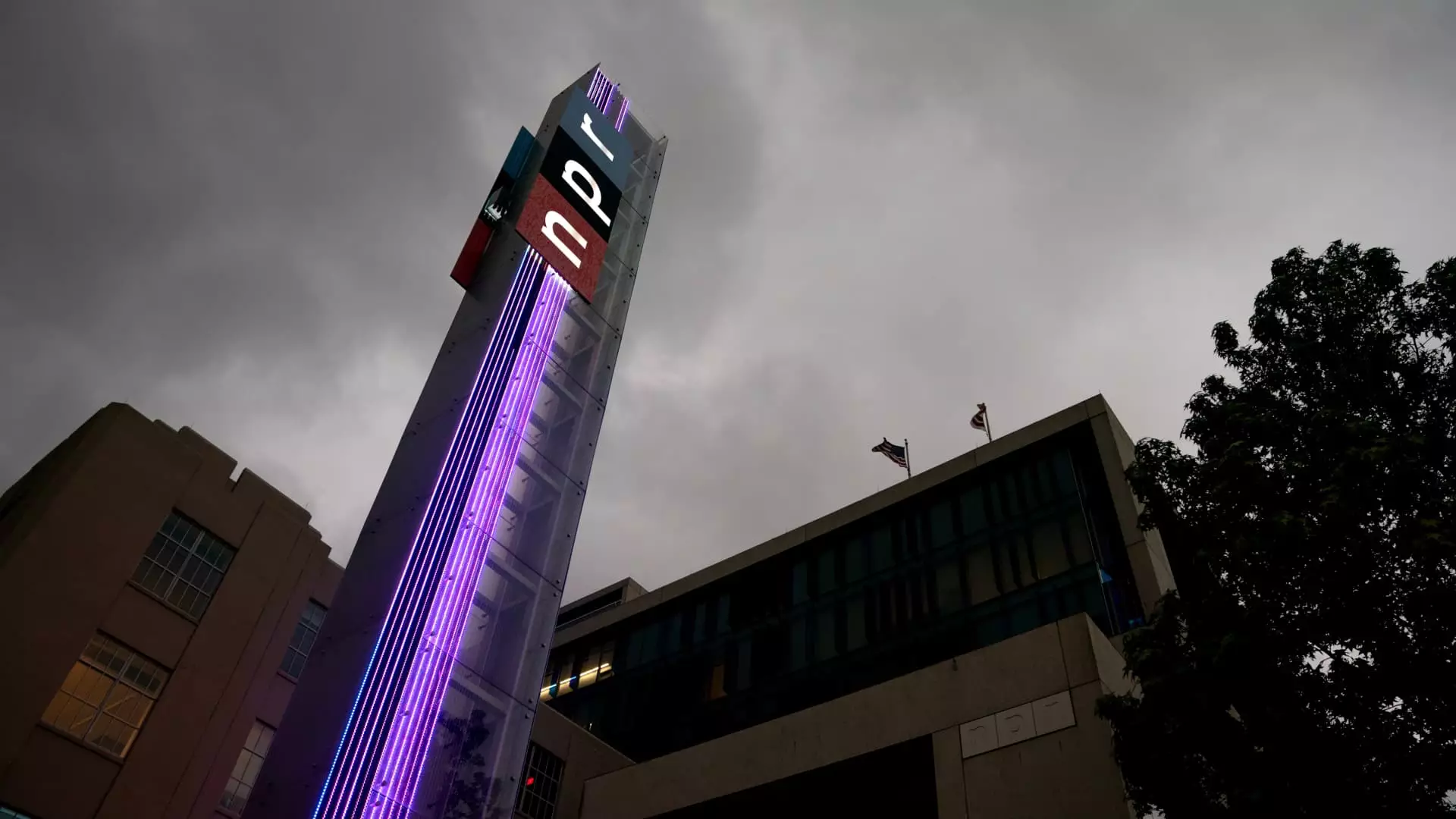The announcement that National Public Radio (NPR) is suing President Donald Trump over his executive order to cut federal funding for the organization is nothing short of an existential alarm for American democracy. As a center-left liberal, the urgency of the situation captivates me—not merely as a consumer of journalism but as an advocate for a society where unbiased reporting is celebrated rather than stifled. By targeting NPR and its affiliated stations like Colorado Public Radio and KSUT Public Radio, Trump isn’t just raising a red flag against one organization; he is assaulting the very fabric of free speech and the democratic ideals that underpin our society.
The executive order, purportedly aimed at eliminating what the Trump administration deems as “corrosive” government funding, raises fundamental concerns about government censorship under the guise of fiscal responsibility. Detractors may argue that public media should be self-sustaining; however, history tells us that public broadcasting serves as a crucial bastion against media monopolies and the corporate fluff that often fills the airwaves. By dangerously conflating the merit of journalism with the whims of political leadership, this executive order invites a chilling effect on independent media. The implications of this are far-reaching; they threaten not merely the existence of public broadcasting but jeopardize the quality and diversity of information available to the American public.
Retaliation Disguised as Policy
The more insidious aspect of this executive order lies in its potential to selectively punish voices deemed ‘biased’ by the administration. This tactic reeks of retaliation—a knee-jerk reaction to critical coverage rather than a legitimate critique of journalistic practices. It seems as though Trump is not merely seeking to change public media’s funding but is actively attempting to suppress dissenting narratives. NPR’s lawsuit highlights this perilous trajectory, describing the administration’s actions as “textbook retaliation and viewpoint-based discrimination in violation of the First Amendment.”
By weaponizing government funding as a means to control public discourse, the Trump administration risks transforming the public broadcasting landscape into an echo chamber where only favorable narratives prevail. The First Amendment, whose cornerstone rests upon the freedom of expression and the press, is a bulwark against any form of governmental overreach. Congress has long established that public funds allocated for media should remain protected from any form of censorship or political retribution. In other words, when the government begins to dictate the conditions under which journalism operates, we lose the very essence of independent reporting.
A Call to Arms for Journalistic Integrity
It cannot be overstated how alarming it is that the Trump administration is tacitly instructing the public on which narratives are acceptable and which are not. The assertion made by White House spokesman Harrison Fields—that government funding supports a political party’s agenda—holds no water amidst a clear record of NPR and PBS providing critical coverage across the political spectrum. To suggest that public broadcasting actively promotes partisan narratives is a dangerous oversimplification that serves only to stifle discourse and dissect the integrity embedded within journalism.
The stakes are higher than mere budget cuts. This lawsuit signals a vital stand against a narrative that seeks to dilute journalistic integrity by compromising the independence of public broadcasters. By establishing funding as a yardstick for bias, the administration not only neglects to recognize the complexities of journalism but unravels the very principles of a democratic society. True journalism should incite conversation, provoke thought, and, at times, challenge the prevailing narratives—including those from the highest echelons of power.
It is the responsibility of the public to ensure that independent media thrives as a check on governmental power. NPR’s suit against Trump is not just a legal battle; it’s a rallying cry to every citizen who understands the significance of a free press. Fighting for justice in this domain is far more than about funding; it stands as a beacon of hope for an informed citizenry capable of making decisions grounded in fact rather than fear or coercion. The freedom of the press is crucial to the well-being of our democracy, and that fight must be fiercely defended.



Leave a Reply